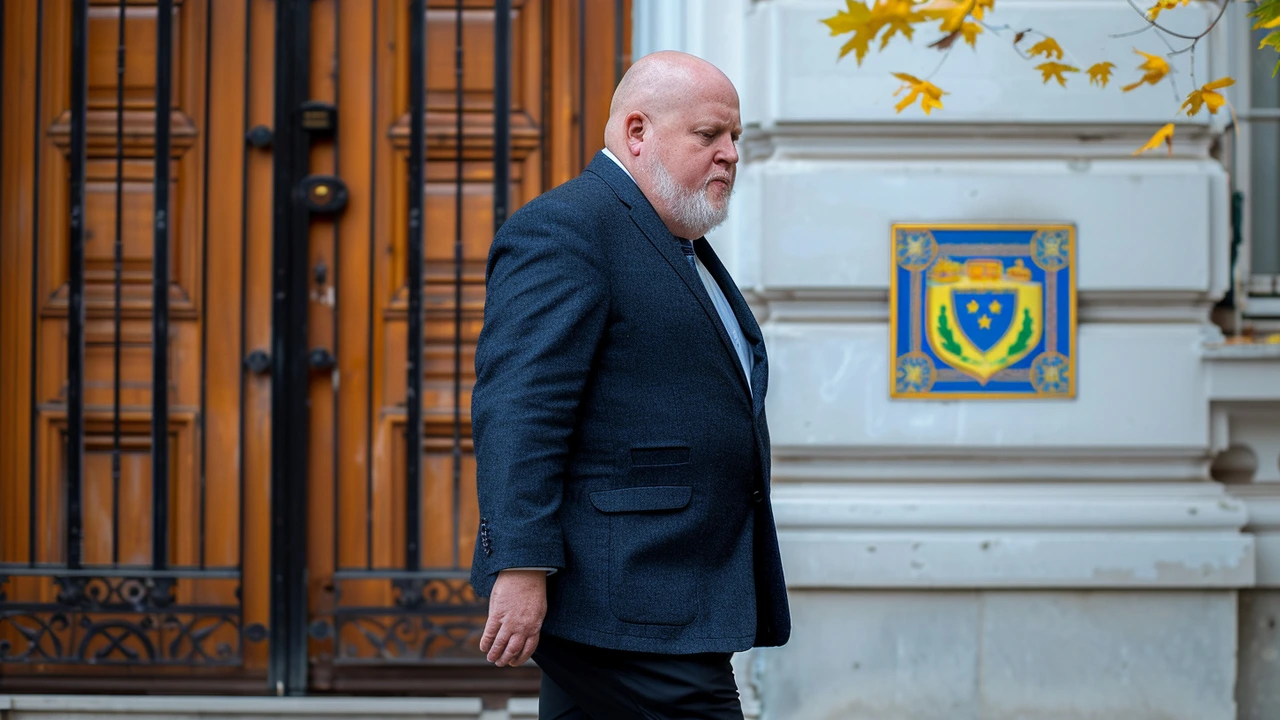The European Union finds itself at an impasse over the International Criminal Court’s (ICC) aggressive stance on issuing arrest warrants for leaders in Israel and Hamas. The move by ICC's chief prosecutor, Karim Khan, to seek these warrants is framed around the alleged war crimes committed during the 2014 Gaza conflict. This significant, yet controversial action has sparked a fierce debate among the EU member states, each grappling with the heavy political and ethical implications attached to this decision.
During the summer of 2014, Gaza witnessed one of the deadliest conflicts between Israel and Hamas, resulting in monumental casualties and deepening the already intense animosity between the two factions. It is in this context that the ICC has stepped in, asserting its role in seeking justice for the victims. Prosecutor Khan’s request for arrest warrants aims to address those suspected of orchestrating or implementing actions tantamount to war crimes. However, this has opened a Pandora's box in the European political landscape.
Some EU member states have lauded the ICC’s bravery, viewing it as a vital step towards ensuring accountability and maintaining the integrity of international law. They argue that the systematic atrocities perpetuated during 2014’s Operation Protective Edge cannot go unpunished. The overwhelming destruction, loss of civilian lives, and the targeting of non-combatants are severe breaches of international humanitarian laws that need addressing, regardless of the political fallout.
Conversely, other factions within the EU caution against potential adverse consequences that such legal actions could engender. These critics worry that moving forward with the prosecution might jeopardize the fragile, already faltering Israeli-Palestinian peace talks. The charges, they argue, might push both parties further into entrenched positions, exacerbating hostilities rather than brokering reconciliation. These concerns highlight the perennial balancing act between upholding human rights and navigating the intricate web of Middle Eastern geopolitics.
The split within the EU is emblematic of the longstanding complexity that surrounds the Israeli-Palestinian conflict. For decades, the EU has prided itself on being a significant diplomatic force aimed at promoting peace and stability in the Middle East. However, this recent division reveals the limits of such roles when faced with stark human rights abuses. Each member state brings its historical alliances, geopolitical interests, and moral philosophies to the table, making a unified response increasingly difficult to achieve.
The potential ramifications of the ICC's pursuit of justice are vast. Should the court succeed in issuing arrest warrants, it would set a notable precedent for international justice. It could signal to governments worldwide that no one is above the law, thereby strengthening the moral authority of legal institutions like the ICC. On the flip side, this move could also lead to increased resistance against international bodies perceived as infringing on national sovereignty.
Since its inception, the ICC has faced significant challenges in asserting its authority, often hampered by political maneuverings and lack of extensive jurisdiction. This instance is no different, underscoring the delicate dance between seeking justice and respecting political sovereignty. The court’s actions towards Israel and Hamas will inevitably test its resolve and potentially define its legacy in international law.
For Israel, this move by the ICC could be interpreted as a blow to its sovereignty and an unjust targeting of a nation defending itself against terrorism. The Israeli government has, in previous instances, dismissed the ICC’s jurisdiction, perceiving such actions as politically motivated and biased against Israel. In contrast, Hamas, which rules Gaza, also faces severe international scrutiny, with allegations of using civilians as human shields and targeting Israeli civilians purposefully.
The EU's split is thus reflective of the broader international community’s struggle with these issues. As global powers and organizations deliberate on the best ways to move forward, the necessity of a balanced approach that respects both ethical imperatives and political realism becomes ever more apparent. The EU's resolution on this matter will likely require extensive dialogue, negotiation, and ultimately, a compromise that seeks to honor the principles of justice without forsaking the delicate peace process.
This scenario serves as a crucial reminder of the international community's role in both advocating for human rights and fostering diplomatic efforts. The outcome of this issue may well influence future international relations and the very fabric of how justice is administered on the global stage. As policymakers navigate this complex terrain, both history and the eyes of the world will be keenly observing their steps.
